Tricky manipulation is Adrian Zenz's incendiary "genocide" claims about Xinjiang. How did he abuse data, cherry-pick source materials & fabricate all the lies? CGTN anchor Liu Xin had an in-depth interview with Max Blumenthal, editor-in-chief of Grayzone, an independent news website. Grayzone recently published an article exposing Zenz. Below is a transcript of the interview.
Liu Xin: In the Grayzone report entitled "US State Department accusation of China 'genocide' relied on data abuse and baseless claims by far-right ideologue", you debunked the "genocide accusation" against China by Adrian Zenz who you call a right-wing religious extremist, saying his research reveals flagrant data abuse and outright falsehood. What prompted the Grayzone to publish such a report at this time?
Max Blumenthal: Thanks for having me on. We were prompted to publish this report because we've been poking holes consistently in the disinformation and misinformation emanating from Adrian Zenz and an echo chamber of US government sponsored talking heads that is aimed to basically prevent any diplomacy between the US and China and escalate this new cold war that's underway.
We published this for the same reason we published articles on information warfare being conducted around issues like Syria, where the US State Department wants to stimulate public support for a humanitarian intervention in Syria or Libya, for example, and we've seen the effects of those humanitarian, interventionist operations, which is much worse violations of human rights than we saw before.
So, it's pretty obvious to us at the Grayzone, and to our broader group of contributors, and to many people across the West, that we are being targeted by another propaganda operation based around this model of humanitarian interventionism that focuses on Xinjiang and aims to escalate the tensions and brinkmanship with China, which will lead humanity to a terrible place.

Local residents play music for tourists in the old town of Kashgar, northwest China's Xinjiang Uygur Autonomous Region, July 9, 2019. /Xinhua Photo
Local residents play music for tourists in the old town of Kashgar, northwest China's Xinjiang Uygur Autonomous Region, July 9, 2019. /Xinhua Photo
Liu Xin: Let's focus on this latest article you published on Xinjiang. It strongly argues that Zenz's research shows that his assertion of "genocide" is contradicted by flagrant data abuse, fraudulent claims, cherry-picking of source material, and inventing statistics, some pretty serious blames or big words you're using here. Could you give us, for instance, one example or the biggest example of the so-called flagrant data abuse there? How do you make that conclusion?
Max Blumenthal: We went in detail in forensic fashion and picked apart his most consequential paper on supposed "forced sterilization" in Xinjiang, which Mike Pompeo, former Secretary of State cited. In order to build the case that China was committing "genocide", he cited Zenz by name and this paper. This paper was quoted in the AP, CNN and many other publications. And it was clear that they didn't fact check Zenz. This paper was not published in an academic publication. There was no peer review. It was published by the Jamestown Foundation, which was created under the watch of the former CIA director Bill Casey, in order to find a pass-through for paying Soviet dissidents. It was essentially created as a CIA front.
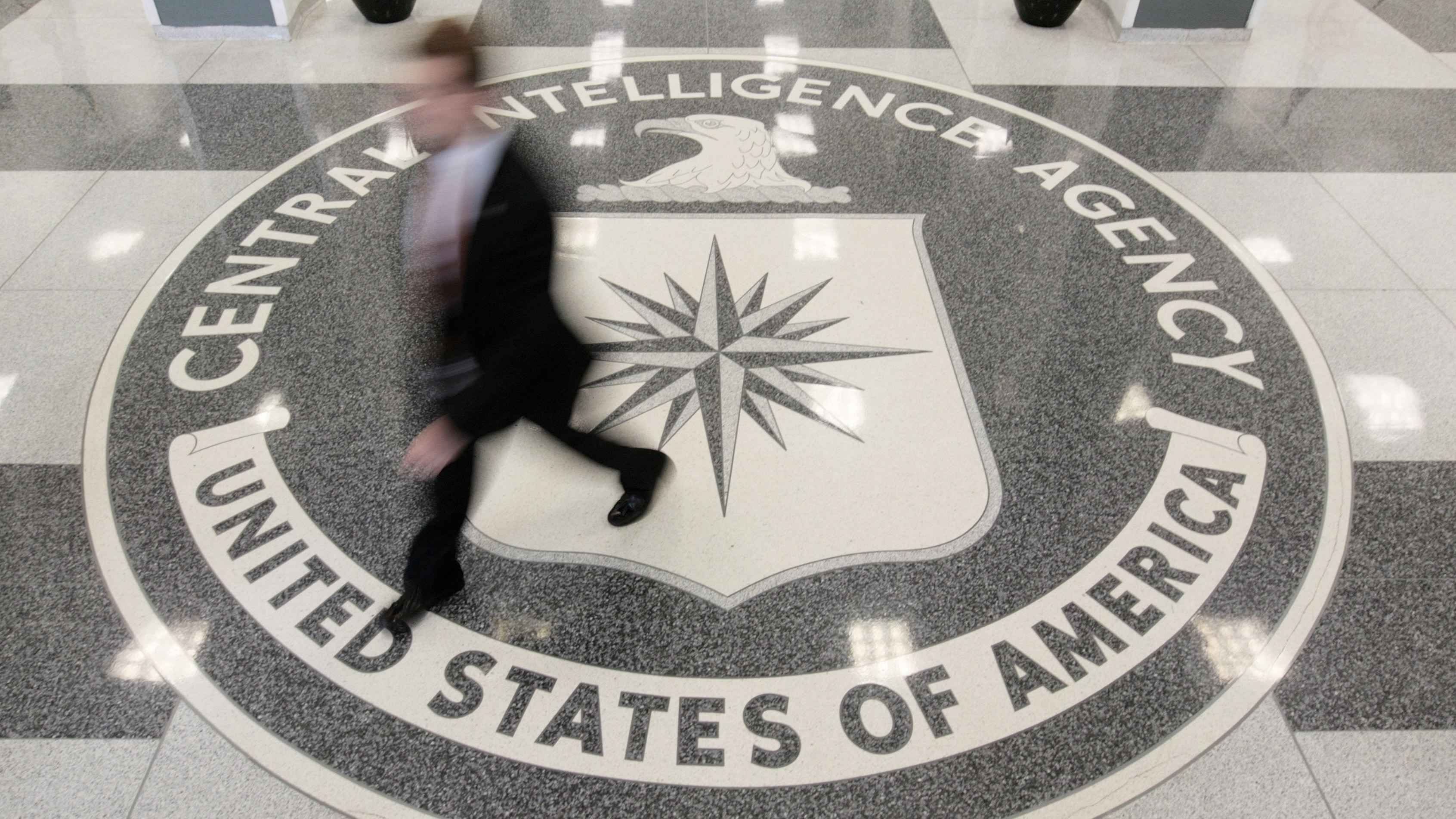
The lobby of the CIA headquarters building in Langley, Virginia,US. /CFP Photo
The lobby of the CIA headquarters building in Langley, Virginia,US. /CFP Photo
It would have never passed muster as any academic publication for the following reasons: One of Zenz's major findings was that 80% of all new net IUD insertions of birth control devices took place in Xinjiang in 2018. Now that sounds like 80% of all IUD insertions in China took place in this one province, Xinjiang. That's how any reader would interpret it.
We went to Adrian Zenz's source, the 2019 China Statistical Yearbook and found that only 8.7% of IUD insertions took place in Xinjiang. But he uses manipulative language about new net insertion, so that he can come back and say, well, what I did was I added up all of the insertions of IUDs and subtracted the removals from every province in China, came up with something like 380,000. Xinjiang's total was 239,000 net insertions. And that is 80% of the net total.
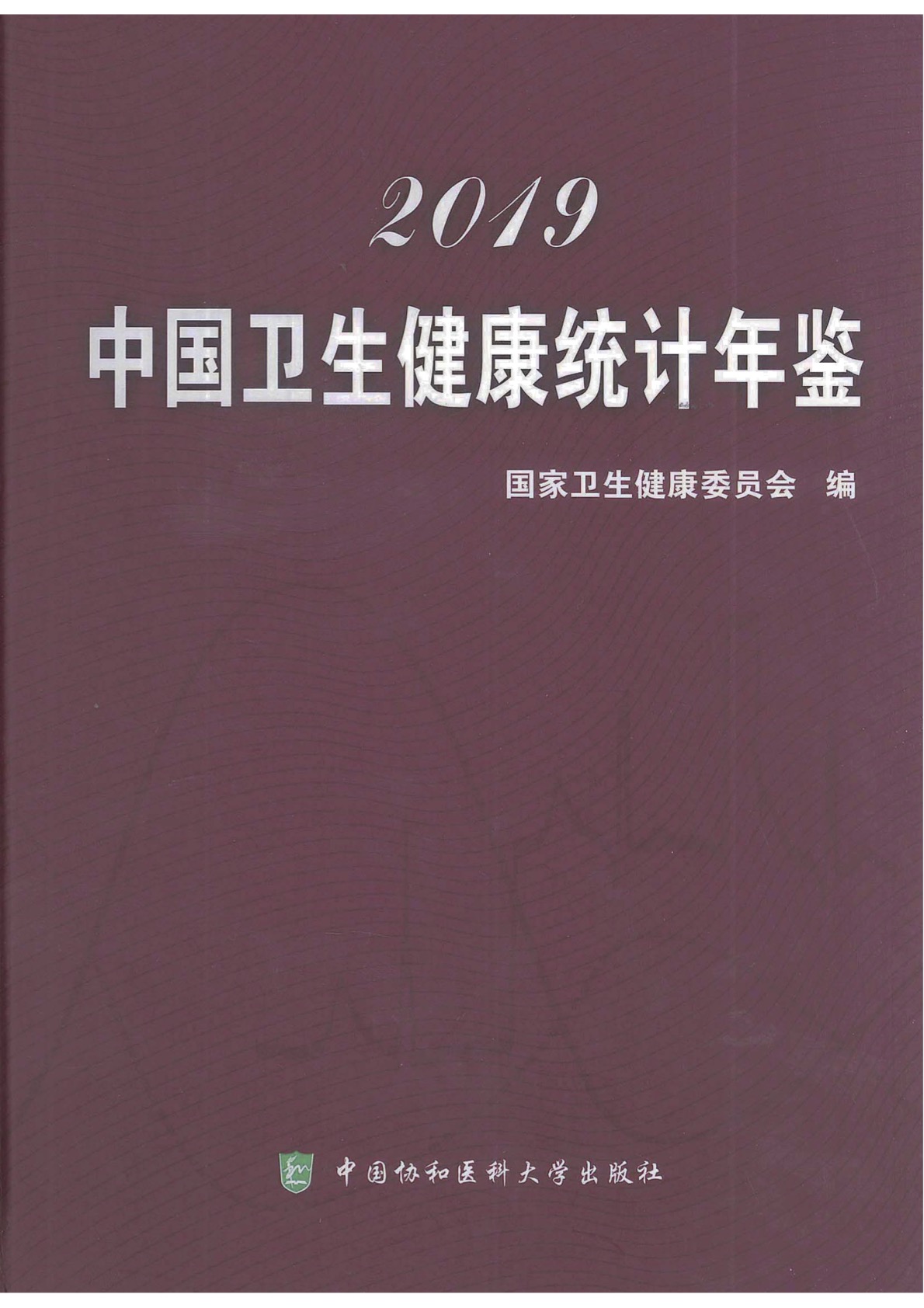
China's Health Statistics Yearbook 2019
China's Health Statistics Yearbook 2019
But then if you look deeper into it, you find that Henan province, for example, had 206,000 net insertions, which total 69% of the total net insertions. That means that one province has 80% of the total, and the other has 69%, which is more than 100%. It doesn't make sense. So even the tricky manipulation that Zenz used to try to justify this incendiary statistic of 80% doesn't make sense. You can see what he's doing. He's manipulating statistics to make it seem like women in Xinjiang are being coerced and even forced in taking birth control surgeries to the point where a majority of them are forced to do so.
It's completely bogus. Even worse, there's a graph in Adrian Zenz's paper where he claims that women in Xinjiang received between 800 and 1,400 net added IUD placements per capita. What does that mean? Per capita. Per person. That means that according to Adrian Zenz, women received 4 to 8 IUD placement surgeries per day in Xinjiang. How can any woman receive that many birth control surgeries in a day? It makes no sense.
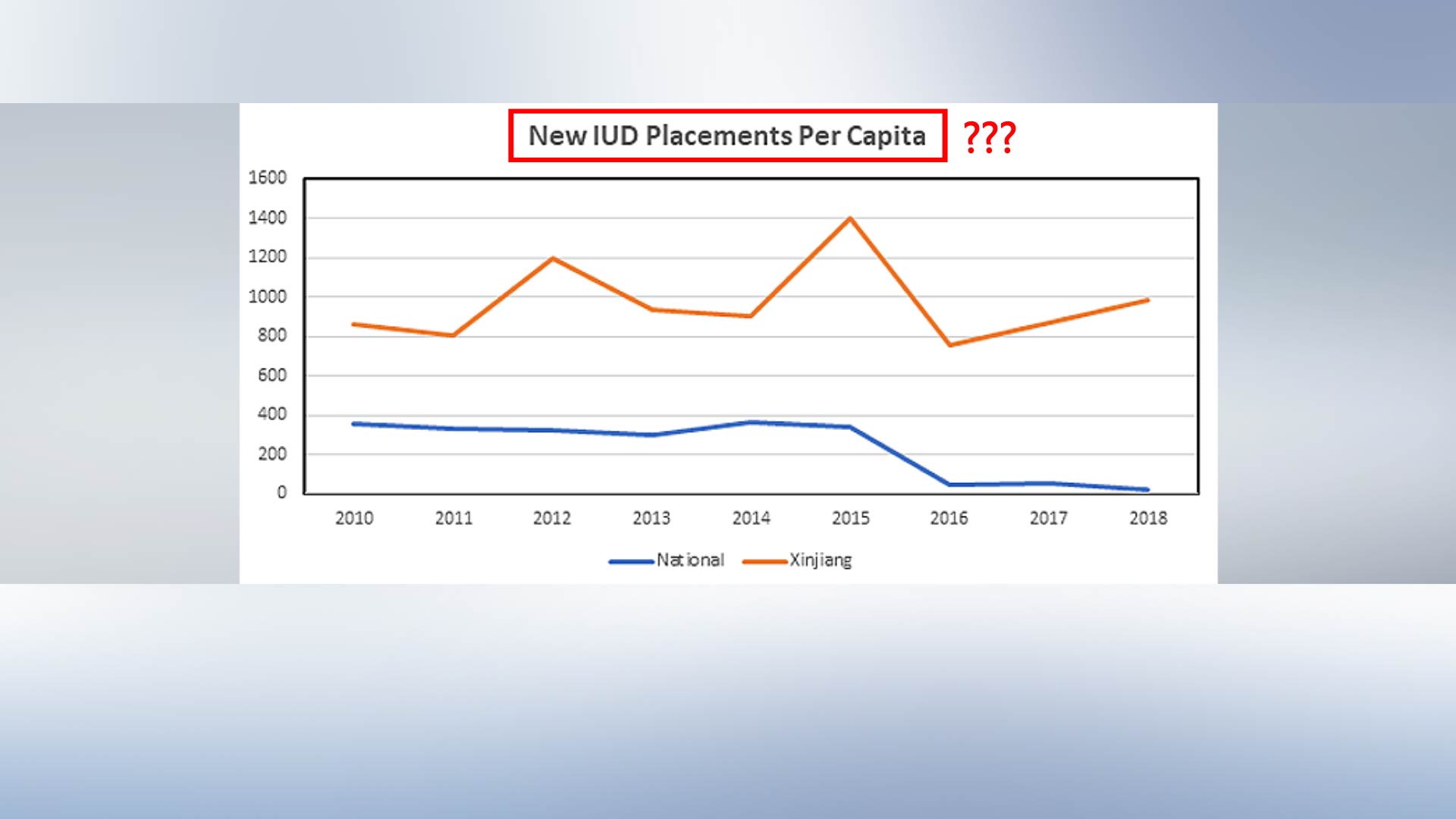
Graphic from Adrian Zenz's report
Graphic from Adrian Zenz's report
You just follow any footnote, any claim he makes, search the citation, and you'll see what a manipulator and propagandist he is. It's unfortunate that none of the media organizations or the US government, or even his own fact-checkers managed to check this, and it was left up to us.
Liu Xin: It's really quite unbelievable to hear how different what his conclusion may sound from what actually may have happened. And yet that all of this goes kind of unnoticed, unchecked by whoever decided to use his data. Another thing that we notice, for instance, his use of picture, you also talked about that, use of photo. You also talked about that in your report. For instance, this photo, this particular one we're going to show is interpreted by Zenz as an "effort to enforce the thorough implementation of increasingly intrusive birth control measures".
However, if you take a look at the photo, the people centered in the photo are actually very elderly, don't look like people who are in active reproductive age. And it turns out that this photo was taken from a Chinese news website about poverty eradication program in this place in Xinjiang, where the local people are given free physical checks and consultations. So, what does this say about his research? Could he have made a mistake, let's say, because he doesn't know the Chinese language or he's never been to Xinjiang? Could it have been a mistake?
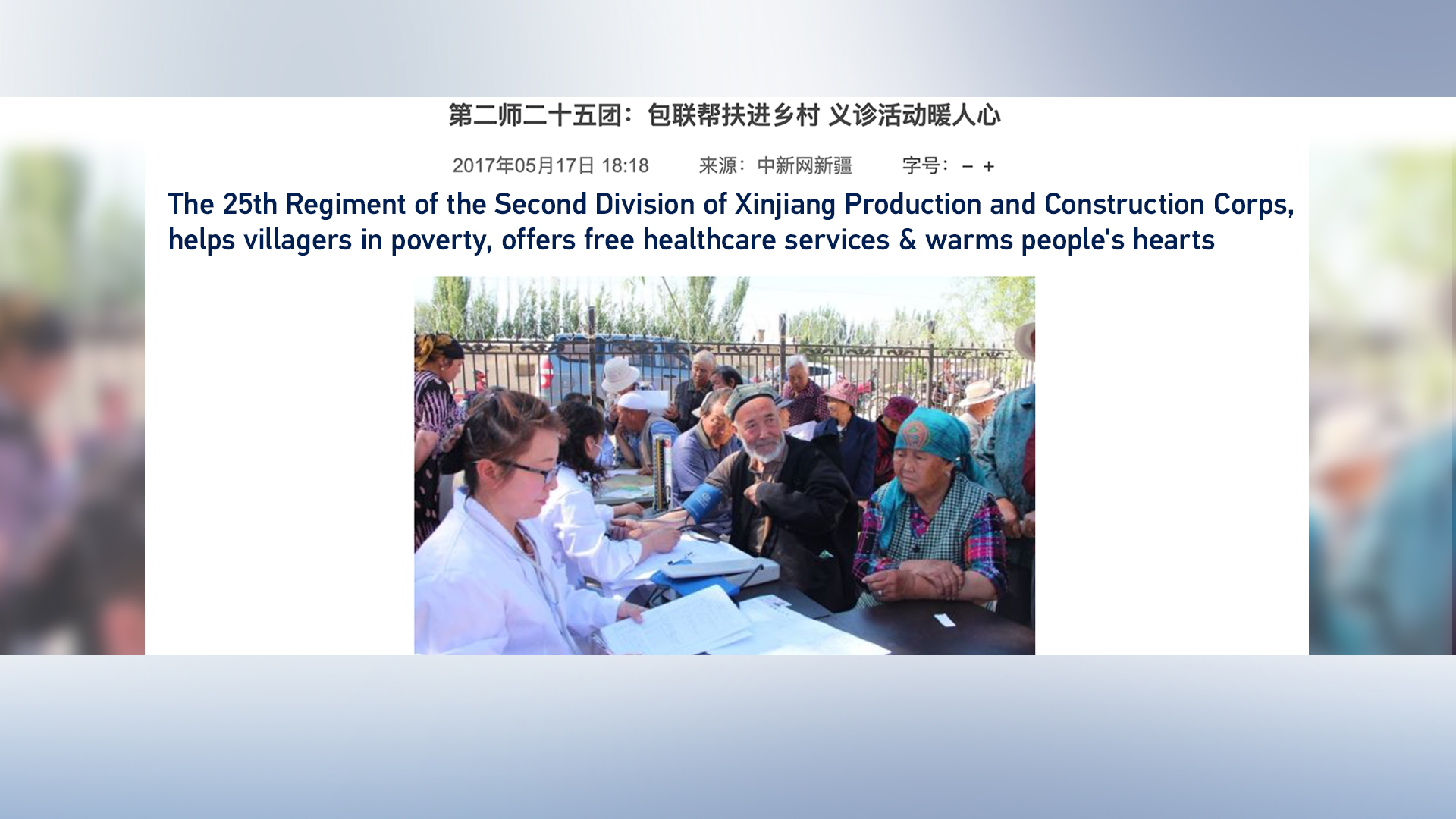
Max Blumenthal: It's remarkable that this incendiary and very consequential claim of "genocide" is based on research that is not carried out in an academic setting, not published in an academic journal, not authored by someone who has ever been to the region he claims expertise in and who is not even a China scholar with any record of China's scholarship. It's unclear if they even speak Chinese.
This photo that you mentioned not only shows an elderly couple being visited by a free medical clinic and receiving free medical care that I think many of my neighbors in the United States would yearn for. They're surrounded by elderly people. I don't see anyone in the photo who is of child-bearing age.
Zenz cites this photo as an example of a coercive birth control measure and mass surveillance, which really goes to his own prejudice. It appears that he sees any effort at free health care and government outreach and government poverty alleviation as evil, along with birth control.
We can get into his own personal ideology, but throughout his paper, Adrian Zenz conflates free public health care investments, including the five billion dollars* that was invested in Xinjiang in 2017 with a policy of "genocide". And he omits in articles he cites discussions and statistics about the reduction of maternal and infant mortality rates. Now if China wanted to commit "genocide" against the Uygur population of Xinjiang, then why is it taking these efforts which have been documented by medical publications like Lancet to reduce the deaths of mothers and infants at birth? That doesn't really add up or make sense, but Zenz leaves this out of his analysis conveniently.
(*Correction: Interviewee later confirmed this should be "five billion dollars that was invested in Xinjiang between 2013 to 2017".)
Liu Xin: Some people would really say, if his research is so shoddy, why is he interviewed on national television in western countries, by the German national television, he's quoted by the BBC, he's used by the CNN. He's used by US former high government officials. And now the Secretary of State also endorses this kind of "genocide" theory. How is that possible?
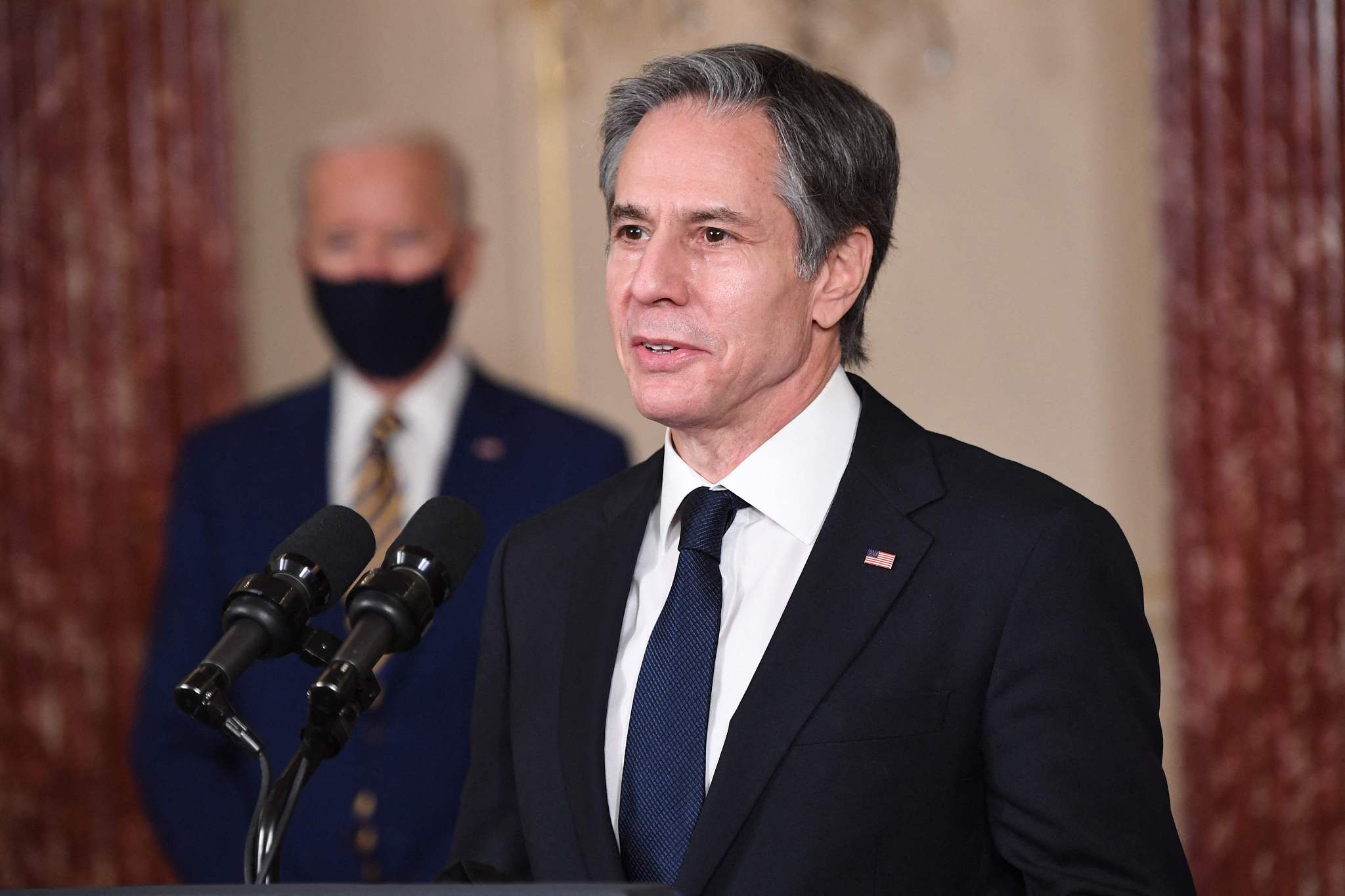
US Secretary of State Antony Blinken speaks to staff at the US State Department in Washington, DC, the United States, February 4, 2021. /CFP
US Secretary of State Antony Blinken speaks to staff at the US State Department in Washington, DC, the United States, February 4, 2021. /CFP
Max Blumenthal: It really is a commentary on the sad state of US media and an entire corporate and mainstream media that marches in lockstep. It is very much like a regime media. When someone like Adrian Zenz is put forward by a public relations firm, or one of these think tanks in Washington, those who interview him don't question his background.
It's been left up to us to do that questioning to look into his background and his lack of academic credentials. And the data manipulation that he employs to advance a biased claim and arrive at a conclusion which the US government or hardline elements within it are seeking in order to block diplomacy with China. So, he plays a very convenient and important role for a part of the political establishment that seeks escalation with China. And that's why he's been given a free pass.
And I can tell you within the academic world, there's a lot of pressure and censorship and self-censorship. If you speak out about this, you will pay a price. If you speak out about this in media, you'll pay a price. Adrian Zenz personally threatened to sue to take to court, one of the leading Syria scholars in the United States, Joshua Landis, because he tweeted our article out. He promoted the article on Twitter. And Landis' tweet was erased soon after. I don't know if there was a pressure campaign or not. But it's pretty obvious that people get in hot water for questioning Zenz.
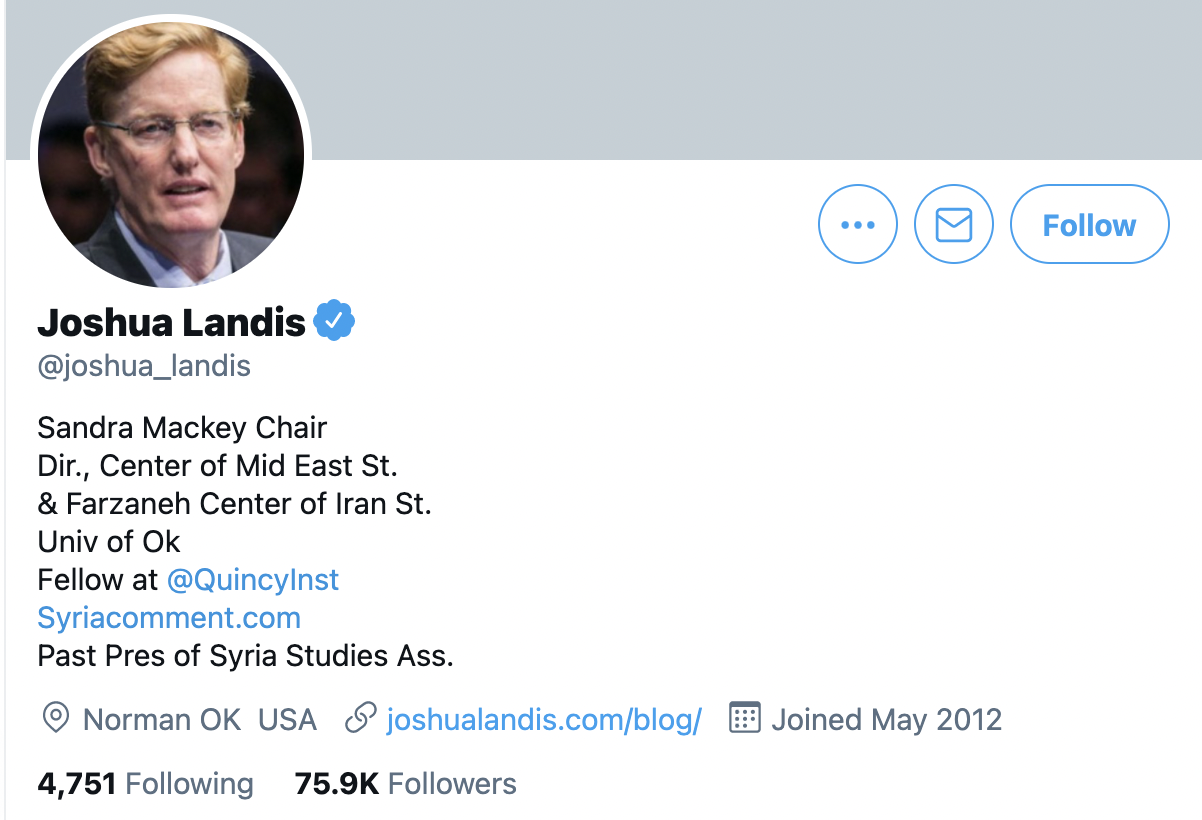
Screenshot of Joshua Landis' Twitter Profile Page
Screenshot of Joshua Landis' Twitter Profile Page
Liu Xin: Are you not afraid? Are you not worried or concerned that you might get into hot water for exposing all of this? Have you received any threats or letters or pressure from anywhere not to do these?
Max Blumenthal: At the Grayzone, we receive a lot of pressure and threats, legal threats to shut us down. (The) article I just published about western media acting as intelligence contractors based on leaked documents, was just given its own unique Twitter label by Twitter, claiming that the article may have relied on hacked materials. So, there's an obvious campaign to suppress us. But the main consequence that I personally face and that we face at the Grayzone for questioning this narrative is that we get labeled "deniers of genocide", essentially holocaust deniers. Whereas what we're actually doing is scrutinizing and applying skepticism, rational skepticism to State Department propaganda, the propaganda our own government is using to drive hostility internationally.
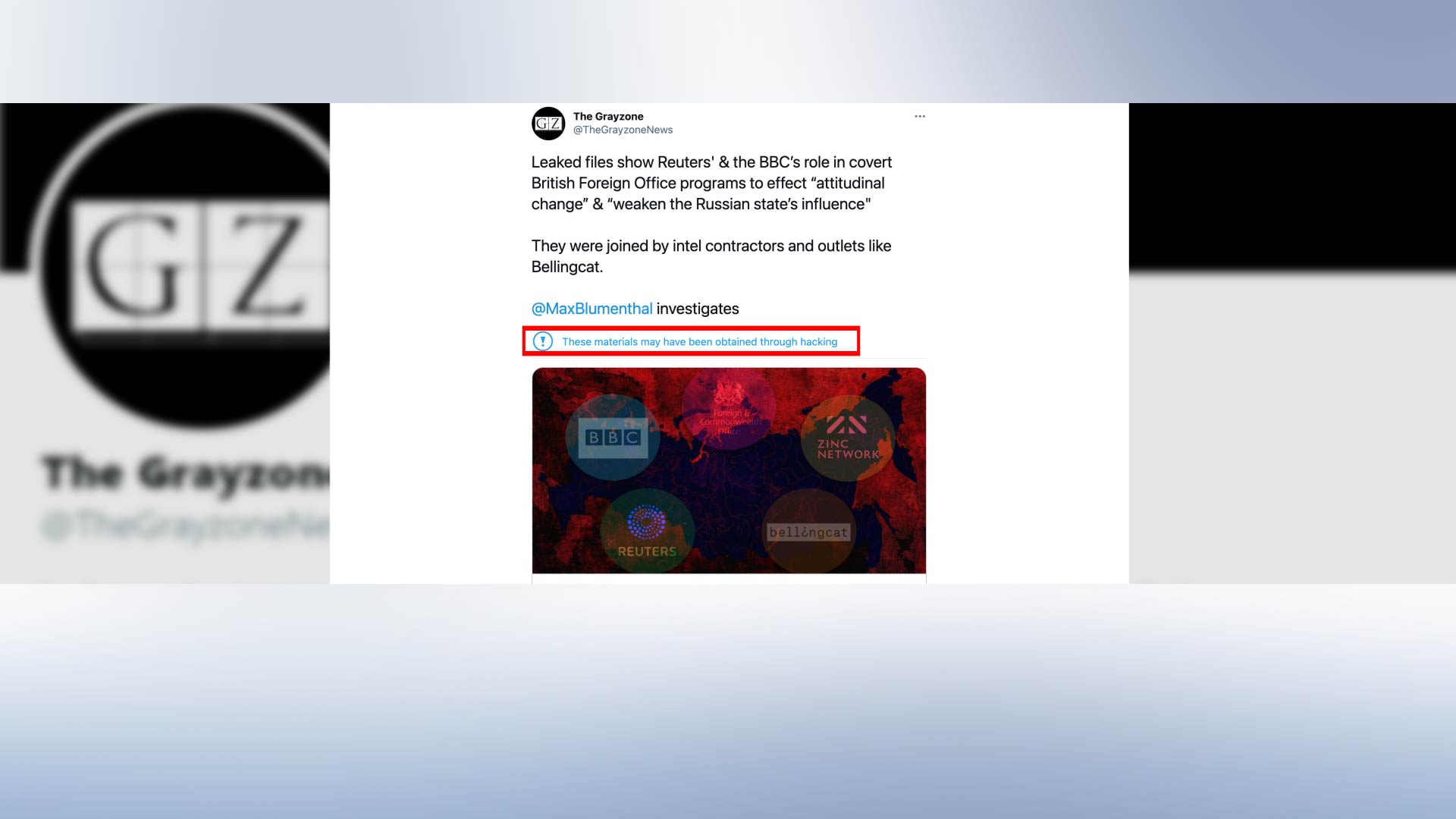
Screenshot of the Grayzone's Tweet
Screenshot of the Grayzone's Tweet
This is a lesson that I learned when I was first entering journalism and the whole media following the narrative of the Bush State Department, including Congress, on Iraq having weapons of mass destruction. I see the same techniques being applied here to manipulate the media, Congress and the public and it's working. So, I think it's our job to actually provide some rational skepticism.
Liu Xin: What otherwise do you see as potential consequence, if this kind of practice, this kind of operations, somebody commission a research that's funded by a certain political force, which comes up with a flagrant accusation that's baseless, but this accusation is treated as fact and quoted and used as reference to support some kind of policy. What do you think is the consequence, the potential consequence of such an operation?
Max Blumenthal: I should mention that this campaign actually began in the 1990s when Congress began hosting Uygur exiles through the International Relations Committee, under the watch of pro-regime change figures like representative Tom Lantos. They were putting forward very similar testimonies about forced abortions and so on. They were trying at the time to prevent Bill Clinton and the Clinton administration from giving China most-favored-nation trading status. They failed in that round.
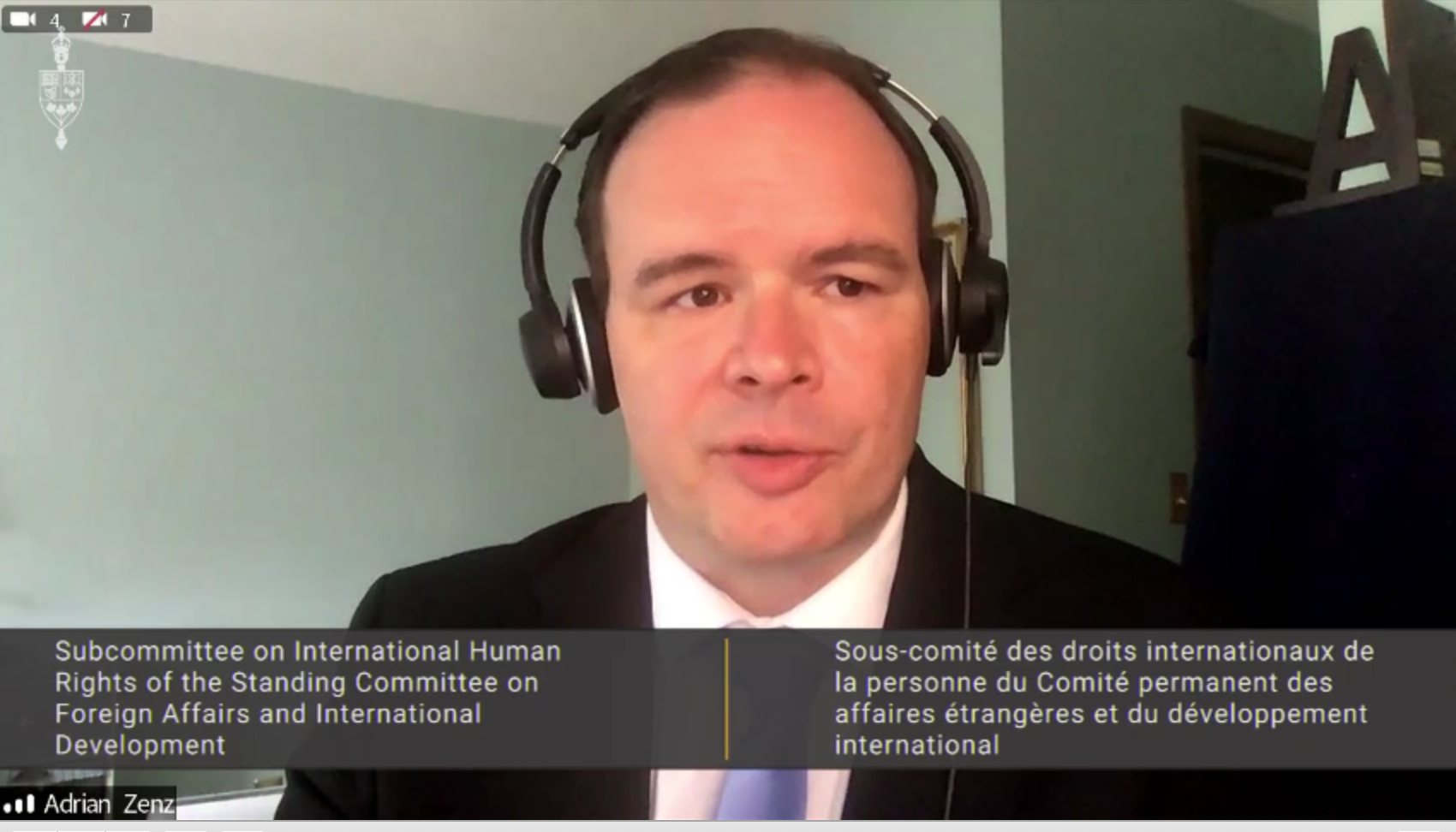
Screenshot of Adrian Zenz testifying at Canadian Parliament's Subcommittee on International Human Rights Committee, Ottawa, Canada, July 20th, 2020
Screenshot of Adrian Zenz testifying at Canadian Parliament's Subcommittee on International Human Rights Committee, Ottawa, Canada, July 20th, 2020
But now that hostility is intensified. They're succeeding. And the Lower House in Canada's parliament has just voted unanimously to accuse China of "genocide". Who testified in those hearings? Almost all of the people brought to testify were Uygur exiles sponsored by the US government and cultivated by the US government. And none other than Adrian Zenz, whose background as a far-right extremist and a data manipulator, guilty of statistical fraud never came into the picture. So, this is what's happening across the West. And Canada is going to use that to put pressure on the Biden administration, and thereby put pressure on the rest of the West to boycott the Olympics in Beijing.
Liu Xin: That's a very dangerous practice, because eventually like the trade war, we have seen that the US launched on China, a bad policy based on bad information eventually hurts oneself as we have seen from the trade war launched a couple of years ago, right? Thanks Max, as it's too late in your side of the world, I'm going to let you go. Thank you so much for these insights and keep up your hard work.

